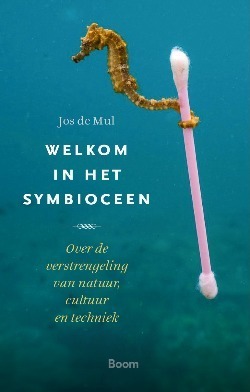Jos de Mul. ( ed.), Plessner's Philosophical Anthropology. Perspectives and Prospects. Amsterdam/Chicago: Amsterdam University Press/Chicago University Press, 2014, 498 p.
ISBN 978 90 8964 634 7 - e-ISBN 978 90 4852 310 8 - €119.00 / £96.00 - Open Access: free download
Helmuth Plessner (1892-1985) was one of the founders of philosophical anthropology, and his book The Stages of the Organic and Man, first published in 1928, has inspired generations of philosophers, biologists, social scientists, and humanities scholars. This volume offers the first substantial introduction to Plessner’s philosophical anthropology in English, not only setting it in context with such familiar figures as Bergson, Cassirer, and Merleau-Ponty, but also showing Plessner’s relevance to contemporary discussions in a wide variety of fields in the humanities and sciences.
Reviews
"Dieser Band ist inhaltlich von der sehr aufschlussreichen Einleitung bis zum äußerst spannenden Entwurf der 'Philosophical Anthropologt 2.0' äußerst gelungen. Es handelt sich sowohl um einen Beitrag zur Plessner Forschung, der weit über diese hinausreicht, als auch um einen Einblick in die aktuellen Debatten der philosophische Anthropologie. De Band nimmt den Faden der Philosophische Anthropologie Plessners auf, die sich von Anfang an als interdiziplinäres Unternehmen verstand. Nicht nu, das die Autoren aus verschiedenen Gebieten stammen, sondern Plessners Denken wird auch mit fremden Disziplinen konfrontiert. Auf diese Weise liefert dieser Band ein farbenfrohes Panorama, das dazu einlädt Pl;essner neu zu Lesen und interdisziplinär zu arbeiten."
Jahannes F.M. Schlick. Plessner 2.0? Die Philosophische Anthropologie imn Kontext der gegenwärtigen Natur- und Sozialwissenschaften. Internationales Jahrbuch für Philosophische Anthropologie. Volume 5 (2015), 279-289.
"Whether new historical developments demand revisions of, supplementations to, or merely further internal distinctions within the Plessnerian conceptual framework is an important question. A question of arguably at least equal importance is whether researchers will continue to confront new developments with the same systematic depth and breadth and with the same openness to and inventiveness about novel concepts, as Plessner did. From this perspective, Verbeek and de Mul’s “meta-eccentricity” and “poly-eccentricity” show the fecundity of Plessner’s approach as much as any limitation to it. These innovations show that new analyses of centeredness and decenteredness of various kinds, within a model of space and movement that allows for interpenetration among physical, logical, and phenomenological modes of appearance and functioning, can be built through variations—eccentric variations, perhaps—on Plessner’s initial account. [..] Further applications and developments of the Plessnerian concepts should be sought not only in scholarly and historical modes but also in constructive and experimental ones. Some of the strongest and most interesting essays in the new volume are in this genre of extension and re-invention.
The accumulated discussions of Plessner, in the nearly 100 years since the publication of Die Stufen, already include remarkably insightful and provocative work, both in sympathetic and critical modes. I think, for instance, of the discussions of Plessner in Erich Rothacker’s (1966) Philosophische Anthropologie; in many of Jürgen Habermas’s works in works by Jürgen Habermas, Herbert Schnädelbach, Hans Blumenberg, Odo Marquard, Peter Sloterdijk, and Marjorie Grene16; in Axel Honneth and Hans Joas’s (1988) Social Action and Human Nature, Roberto Esposito’s ([2002] 2011) Immunitas, and Christof Wulf’s ([2004] 2013) Anthropology: A Continental Perspective (see also, Gebauer and Wulf 2009); and now this volume. Plessner studies can become more compelling, more wide-ranging, and more eccentric, by building on a dialogue with this accumulating literature."
Phillip Honenberger. Eccentric Investigations of (Post-)Humanity. Review Essay. Philosophy of the Social Sciences 2016, Vol. 46(1) 56–76 (for the complete review see attachment).




 Vanaf de derde druk verschijnt
Vanaf de derde druk verschijnt 





